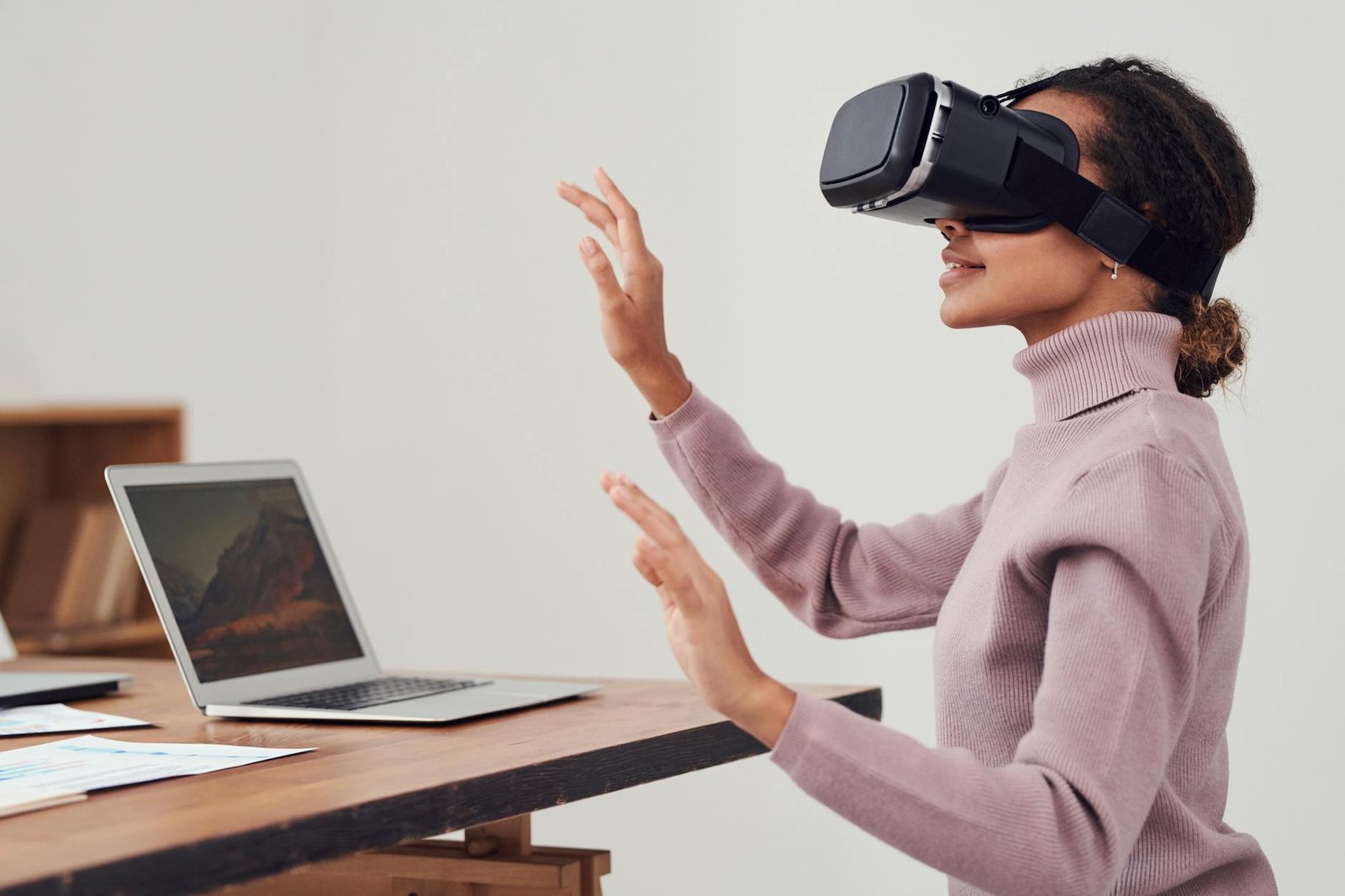Virtual reality (VR) has become a powerful tool in the corporate world, transforming traditional methods of training and development. One of the most promising applications of this technology is in leadership training, where immersive simulations allow leaders to practice and refine their skills in a controlled, risk-free environment. VR leadership training is especially appealing to corporate trainers, coaches, HR professionals, and other experts who are continuously seeking innovative ways to enhance the work environment and help individuals and teams grow into more effective leaders.
The increasing complexity of the modern workplace, coupled with the need for adaptive, emotionally intelligent leaders, has created a demand for more advanced leadership development programs. Traditional methods such as seminars, workshops, or case studies, while effective, often fail to fully engage participants or offer opportunities for real-world application. VR leadership training, however, overcomes these limitations by providing an experiential learning environment where individuals can develop crucial leadership qualities through practice and reflection.
The Advantages of VR Leadership Training

One of the primary advantages of VR leadership training is the ability to simulate realistic, high-pressure situations that leaders are likely to encounter. This can range from managing conflicts within a team to making strategic decisions under tight deadlines. In a virtual setting, participants can immerse themselves in these scenarios, practicing their decision-making, communication, and problem-solving skills without the fear of real-world consequences. The ability to test different leadership approaches in real time allows participants to gain confidence and learn from their mistakes in a constructive way.
Moreover, VR leadership training enables a personalized learning experience. Traditional training sessions are often generalized, addressing a broad set of skills that may or may not be relevant to every individual in the group. VR can adapt to the specific needs of each participant, offering tailored scenarios that focus on their unique strengths and weaknesses. For example, an employee who struggles with conflict resolution may be placed in multiple simulations that require them to mediate disputes or manage interpersonal challenges, helping them build confidence and competence in these areas over time.
Another significant benefit is the immersive and engaging nature of VR. Unlike passive learning methods, VR keeps participants fully involved in their training. The immersive environment allows for deep focus, enabling leaders to truly embody the roles they are training for. This results in better retention of skills and knowledge, as participants are not simply absorbing information but actively applying it. This leads to improved outcomes when they transition back into their real-life leadership roles.
Developing Core Leadership Skills Through VR
Leadership is multifaceted, requiring a broad set of skills that can be challenging to develop in traditional training environments. VR provides an ideal platform to practice and strengthen these skills through a hands-on, interactive approach.
One of the key areas where VR excels is in enhancing emotional intelligence, which is critical for effective leadership. Emotional intelligence involves understanding and managing one’s emotions, as well as being aware of and responding to the emotions of others. Through VR simulations, leaders can practice navigating complex interpersonal situations that require empathy, active listening, and emotional regulation. For example, a scenario may involve a difficult conversation with a team member who is underperforming. The leader must manage their own emotional response while effectively addressing the issue, a skill that VR allows them to refine.
VR also helps to enhance strategic thinking and decision-making abilities. Leaders often face situations that require quick thinking and sound judgment, especially in high-stakes environments. In VR simulations, participants can practice making decisions under pressure, balancing short-term needs with long-term strategy, and evaluating the outcomes of their choices. The ability to experiment with different strategies in a virtual environment enables leaders to become more confident and adaptable decision-makers, skills that are essential in today’s rapidly changing business landscape.
Enhancing Team Leadership in a Virtual Environment

While VR leadership training is highly effective for individual skill development, it also offers substantial benefits for team leadership. Leading a team requires strong collaboration, communication, and delegation skills, all of which can be developed and practiced in a virtual setting.
In VR, leaders can participate in simulations that involve managing teams in dynamic, unpredictable environments. These scenarios may mimic real-world challenges such as project management, crisis response, or team conflict. In these situations, the leader must navigate complex group dynamics, communicate clearly, and ensure that tasks are effectively delegated to the right team members. This hands-on experience allows participants to refine their team leadership skills in a controlled environment where they can experiment with different approaches and learn from both successes and failures.
Moreover, VR can be used to foster better collaboration and trust within teams. By involving team members in shared VR simulations, leaders can practice their leadership skills while also building stronger relationships with their colleagues. The shared experience of working together in a virtual environment helps to strengthen bonds, improve communication, and create a more cohesive team. As a result, VR leadership training not only benefits the individual leader but also contributes to more effective and harmonious team dynamics.
The Role of Feedback and Reflection in VR Leadership Training
One of the critical elements of leadership development is feedback. In traditional training environments, feedback is often delayed or generic, limiting its effectiveness. However, VR leadership training provides immediate, personalized feedback, which helps leaders understand the impact of their actions in real time.
For example, after a VR simulation, participants can review their performance, receive feedback on their decision-making process, and understand how their actions influenced the outcome of the scenario. This immediate feedback loop accelerates the learning process and encourages leaders to reflect on their performance, identify areas for improvement, and apply those lessons in future simulations.
Reflection is another vital component of leadership development that VR supports. VR scenarios can be recorded and replayed, allowing participants to analyze their behavior and responses in detail. This reflective practice encourages leaders to think critically about their decisions, understand how they might approach similar situations differently in the future, and internalize key leadership lessons.
The Future of VR in Leadership Training
As VR technology continues to evolve, its applications in leadership training are expected to grow significantly. One of the most exciting developments is the integration of artificial intelligence (AI) into VR training programs. With AI, VR simulations can become even more dynamic and personalized, adapting to the leader’s performance in real time and providing increasingly sophisticated scenarios that challenge and develop their skills.
Additionally, the rise of remote and hybrid work environments has made VR an even more valuable tool for leadership training. VR allows leaders and teams to engage in immersive training sessions regardless of their physical location, offering a solution to the challenges of remote leadership development. This ensures that leaders can continue to refine their skills and build strong teams even in a geographically dispersed work environment.
The future of VR leadership training also holds potential for integrating cross-cultural competencies. As companies continue to expand globally, leaders need to navigate the complexities of managing diverse teams across different cultural contexts. VR can simulate cross-cultural leadership challenges, helping leaders develop cultural awareness, sensitivity, and adaptability—skills that are increasingly vital in today’s globalized business world.
Elevating Leadership with VR
For corporate trainers, coaches, HR professionals (https://mazerspace.com/services/for-hr-professionals/), and experts looking to elevate leadership development, VR represents a powerful tool for transformation. Its immersive, hands-on approach enables leaders to practice real-world skills in a virtual environment, ensuring they are well-prepared to handle the challenges of modern leadership. By embracing VR leadership training, companies can develop more confident, adaptive, and emotionally intelligent leaders, fostering a work environment that is not only more effective but also more innovative.
As VR continues to evolve, its role in leadership development will only grow, providing new opportunities for companies to invest in the next generation of leaders. For those looking to stay at the cutting edge of corporate training, VR leadership training is an invaluable asset that promises to reshape how leadership is taught and practiced in the years to come.





